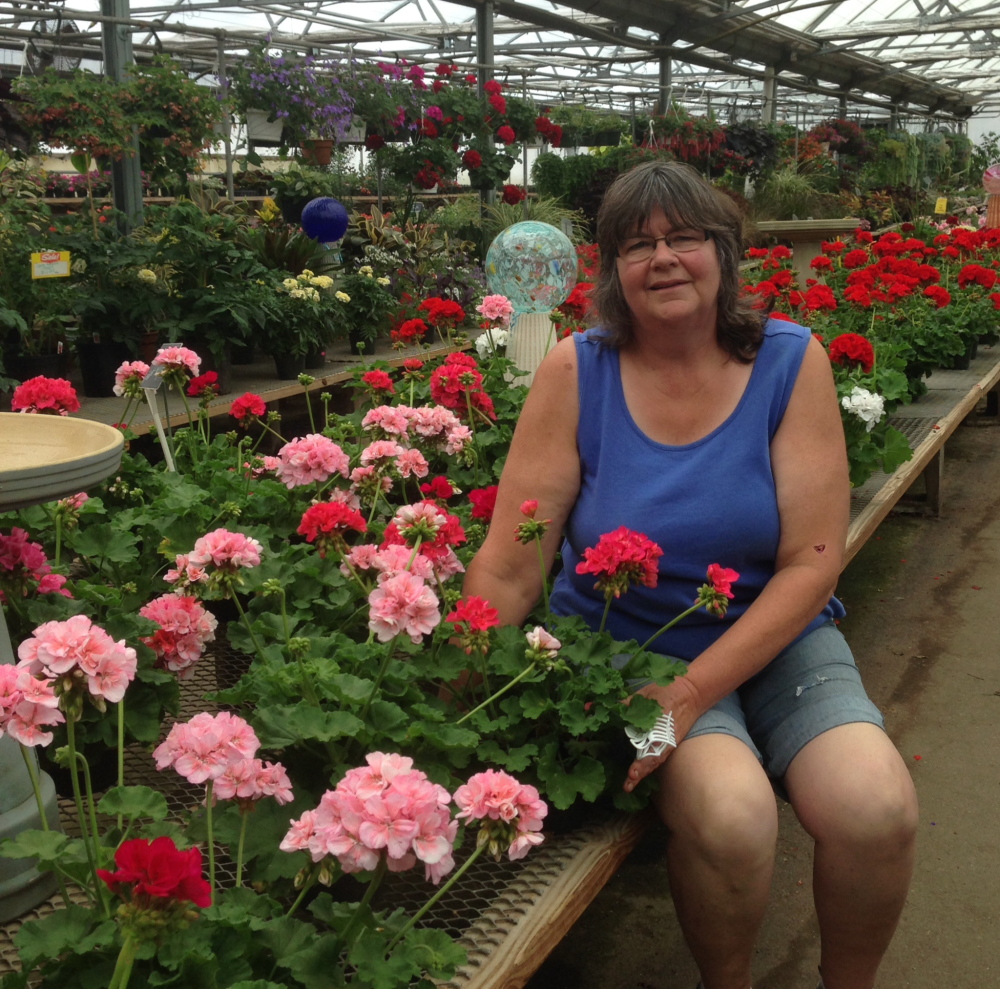On the shelf of a garden center in Fairfield Wednesday was a common pesticide brand that included imidacloprid.
Cathy Hebert, co-owner of Sunset Flowerland & Greenhouse, said she probably wouldn’t have bought the pesticide if she’d known how harmful it is to bees.
Hebert, who operates 21 greenhouses at the Ridge Road business, said she is aware of pesticides that are considered harmful to bees, but she didn’t know imadacloprid, the largest-selling pesticide in the country, was one of them.
“That’s one of the problems, (the pesticides) are coming in with this name,” Hebert said.
A nationwide study released this week said neonicotinoid, found in imadcloprid and other pesticides, kills honeybees as well as butterflies and birds. The study said that the pesticide is commonly found on plants sold at large retailers, such as Home Depot, Lowe’s and Walmart.
That study coincides with Environmental Protection Agency labeling standards that are beginning to take effect that more specifically say what’s in pesticides.
Representatives from Unity-based Maine Organic Gardener and Farmer’s Association bought four common landscaping plants from the two large home goods stores in Augusta — Home Depot and Lowe’s — as part of the study and found that three of them tested positive for neonicotinoid, or neonic, pesticides, deputy director Heather Spaulding said Wednesday.
Home Depot and Lowe’s both were quick to put out news releases Wednesday saying they comply, or plan to comply, with the federal regulations requiring that plants that use the pesticides are properly labeled.
“If giant purchasers of plants can demand that plants be neonic free, it can make an impact,” Spaulding said. “Applying systemic neonic pesticides is like taking antibiotics all the time to not get sick.”
The study, Gardeners Beware 2014, was led by the environmental advocacy group Friends of the Earth, and it focused on larger retailers because they make an impact on wholesale agricultural practices.
Neonic is a class of insecticides that can be harmful to honeybee colonies, and in 2013, the European Commission enacted a two-year ban on the use of the insecticide. One type of neonic insecticide commonly found in plants bought at the retail level is imidacloprid, the largest selling insecticide in the country, amounting over a billion dollars in sales in 2009, according to the Journal of Agricultural and Food Chemistry.
Yet, Hebert said, large-scale growing and greenhouse operations need some level of pesticide treatment.
“In a greenhouse environment, everything is protected, so insects can go rampant,” she said. “In a greenhouse environment, the bugs would go crazy. The plants would be destroyed.”
Hebert said that her family has owned and operated greenhouses since the 1950s as pesticide treatments have evolved with more research and studies.
“It’s becoming more aware,” she said. “We pay attention to the studies, and we try to do a lot more.”
Of the four different perennials MOFGA bought — two each from Home Depot and Lowe’s in Augusta — both flowers from Lowe’s tested positive for the insecticide, while one of the two from Home Depot tested positive.
Both national chains quickly issued statements Wednesday supporting the research and the recent Pollinator Health Task Force, established by the Obama administration to focus efforts on research aimed toward helping pollinating species such as bees recover from population declines.
Home Depot is taking steps to require live goods suppliers to label plants that have been treated with neonics by fourth quarter of 2014, according to Catherine Woodling, Home Depot’s corporate communications manager.
“We’re also glad to provide customers with alternative products for their insecticide needs and are actively working with our live goods suppliers to find alternative insecticides for protecting live goods and bees,” Woodling said in a statement.
Lowe’s issued a statement stating it has been monitoring the latest science from various sources, including the U.S. Department of Agriculture and environmental groups. The statement also said the company expects all its vendors to abide by Environmental Protection Agency guidelines regarding insecticides.
In 2013, the EPA issued new labeling standards for neonic pesticides, including a Bee Advisory Box, that highlights the need to protect pollinators.
“This product can kill bees and other insect pollinators,” the label states in bold, red lettering.
While those labeling changes are still months away from the marketplace in some instances, Spalding suggested that the best way for consumers to know what products have been used on plants is to simply ask.
“We encourage folks to talk to the garden center and be sure it’s not in the soil,” Spalding said.
Hebert said that not many customers ask for specific information such as the types of pesticides used; however, it’s something they would answer.
“Not many people have approached us asking that, but we would talk to anyone about it,” she said.
And while pollination will eventually limit a plants flowering ability, Hebert said bees play a vital role in vegetation and gardening.
“For seed production, you need the pollinators,” she said. “How would I buy seeds if I don’t have pollination?”
Jesse Scardina — 861-9239
Twitter: @jessescardina
Send questions/comments to the editors.



Success. Please wait for the page to reload. If the page does not reload within 5 seconds, please refresh the page.
Enter your email and password to access comments.
Hi, to comment on stories you must . This profile is in addition to your subscription and website login.
Already have a commenting profile? .
Invalid username/password.
Please check your email to confirm and complete your registration.
Only subscribers are eligible to post comments. Please subscribe or login first for digital access. Here’s why.
Use the form below to reset your password. When you've submitted your account email, we will send an email with a reset code.